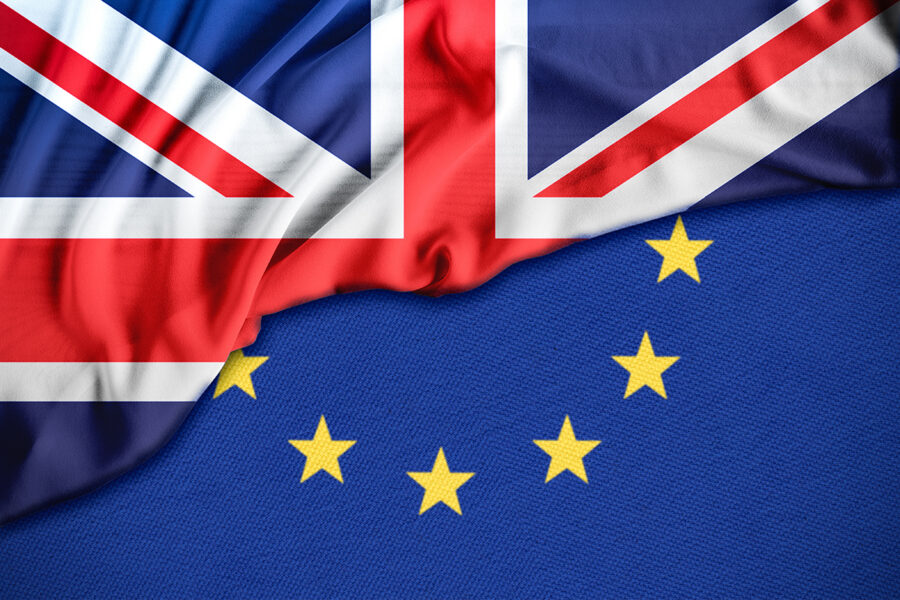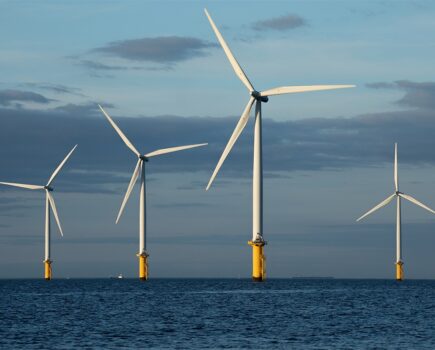Government admits lack of enforcement capacity
The government doubts that Britain will be able to control fishing in its 200-mile EEZ when we become an independent coastal state after Brexit, reports Tim Oliver
This was made clear in a memo from DEFRA, sent by mistake to the BBC, that says that there are just 12 ships ‘to monitor a space three times the size of the surface area of the UK’.
The note says, “While our public position on this wider issue is already clear and widely communicated, in that post-Brexit we will be an independent coastal state with control of our waters, both policy [officials] and MoD [Ministry of Defence] have indicated we are not on an overly strong footing to get ahead of the potential claims that could arise from this story.
“At this stage, there is a lot of uncertainty about the sufficiency of enforcement in a no-deal because we have 12 vessels that need to monitor a space three times the size of the surface area of the UK.”
Brexit campaign group Fishing for Leave (FFL) slammed the government’s ‘defeatist’ assessment of the enforcement position (see below).
The internal DEFRA email referred to a number of media stories, including one being worked on by a freelance journalist for the Independent, that planned to look at the preparation being made to deter EU fishermen from UK waters in the event of a no-deal Brexit, and also whether the UK will enforce the exclusion of foreign vessels.
In addition to a shortage of ships, the email indicates that the UK needs to urgently hire more maritime enforcement officers ahead of the 31 October Brexit deadline, with ‘additional officers undergoing enforcement training’.
Former First Sea Admiral Lord West, now a Labour peer, said that the UK does not have the capability to enforce a ban on EU fishing vessels.
He told Sky News: “We do not have enough ships to protect our fishing zones should we suddenly have a disagreement with the EU about who is fishing where [after we leave] – we just don’t have enough ships.
“When you include the job of stopping illegal immigrants, where the Navy needs to help because there aren’t enough cutters, and smuggling, terrorists and so on, we have not got enough vessels in all the agencies to ensure the safety and security of our territorial seas and the protection of our fishing zones.”
NFFO chief executive Barrie Deas said that any EU vessel would be ‘foolish’ to fish in UK waters – even without a deal in place.
He told BBC Radio 4’s Today programme: “Under international law, the UK would automatically become an independent coastal state with the rights and responsibilities of that status, and there is an obligation under the UN Law of the Sea for countries that share stocks to co-operate.
“So I think there will be a fisheries agreement post-Brexit between the UK and the EU, but on a different basis from the Common Fisheries Policy.”
A government spokesperson said: “Unfortunately, this evening an internal email was inadvertently sent outside of DEFRA. Handling emails allow officials to examine the veracity and details of media enquiries.
“Britain is leaving the EU on October 31, with or without a deal. We are confident that we will have the ships and the expertise we need to properly enforce security in UK waters.”
FFL slams ‘defeatist’ government
Fishing for Leave (FFL) said that DEFRA’s attitude was ‘rather defeatist’. Britain should be able to make ‘a semi-decent fist’ of protecting its waters, and it would be a ‘high risk’ for EU vessels to fish far into UK waters.
The main front line would be the border zone running from the Dogger Bank in the middle of the North Sea all the way round to between the UK and the Republic of Ireland off Anglesey.
“That’s about 1,200 nautical miles,” said FFL. “Even if there’s only four of the 12 ships that DEFRA lists deployed at once, that’s 300nm per sector for each ship. Steaming at 15 knots, that’s 20 hours from one sector end to the other.
“Therefore, a ship could steam up and down the line daily, watching out for any EU vessel chancing their arm being a half dozen miles the wrong side of it.
“Add in modern radar, monitoring targets behaving as though they are fishing, and spotter planes deployed to direct patrol ships onto vessels fishing illegally with their AIS or legally required VMS switched off, and it doesn’t become insurmountable to pick up most offenders.
“Does DEFRA not rate our proud Royal Navy, or is DEFRA/Whitehall looking for excuses to be soft so as not to upset the EU? We wouldn’t be surprised, going on past form. They never seem to lack the capacity to chase UK boats here, there and everywhere for any offence.”
FFL pointed out that it is a legal requirement for all contracting parties to the North East Atlantic Fisheries Council (NEAFC) to have their vessels fitted with VMS, and to share the data between enforcement agencies. It should therefore not be difficult to track the majority of law-abiding vessels.
“The EU constantly calls for everything possible to be done to prevent illegal (IUU) fishing, and has the obligation under international law in UNCLOS to prevent its own vessels from illegal fishing – are they going to sit back and let their fleets fish illegally in UK waters?”
Calling for vessels fishing illegally to be impounded and hit with heavy fines, FFL said that Iceland had managed to protect its waters against the Royal Navy during the 1970s cod wars with two small gunboats and no electronic or aerial technology.
It said that protecting our waters was ‘a question of political will’ and that the world would be watching to see whether an independent Britain would stand firm in defence of its waters or be ‘a pushover in international affairs’.








